Reviews
Jeff Kanew
USA, 1991
Credits
Review by Glenn Heath Jr.
Posted on 20 June 2013
Source Buena Vista Home Entertainment DVD
Categories Failed Franchises
The box office failure of a Hollywood film, especially one that was intended to begin a long and lucrative franchise for both its star and studio, is inevitably a complex scenario with multiple economic and creative factors. The case of Jeff Kanew’s 1991 bomb V.I. Warshawski starring Kathleen Turner, the first of a planned series on the wisecracking private detective made popular by Sara Paretsky’s crime novels, is most interesting for what it says about the relationship between gender and genre in tinsel town. While not a great film by any measure, V.I. Warshawski valiantly attempts to revise the patriarchal rules of mainstream storytelling and place at its center a strong female character forced to examine her own identity as a woman.
Detective films have notoriously been dominated by men ever since the genre’s inception, often pushing female characters to the fringes or relegating them to villain status. So in a way, V.I. Warshawski says more about Turner’s powerful draw as a performer than anything else. After a string of critical and commercial hits that included Romancing the Stone, Prizzi’s Honor, Peggy Sue Got Married, and The Accidental Tourist, she was a bonafide star by the late 1980s. So what was it about this particular marriage of form and content that repelled viewers so much the film only drew in 11 million on North American screens? Was this particular character too confident and strong for a primarily male-driven audience to embrace?
The answers to these questions are varied and subjective, but the film itself offers multiple fascinating threads to consider. Based primarily on Paretsky’s novel Deadlock, Kanew’s formally straightforward action comedy follows the ballsy V.I. (later called Vic) as she traverses her hometown of Chicago trying to solve the murder of a famous hockey player embroiled in shady union deals involving his family’s shipping company. A key subplot involves the dead man’s snarky daughter Kat who quickly becomes a surrogate daughter to Vic. Most of the film’s jokes revolve around the character’s gender and profession, as when Stephen Root’s smarmy factory owner refers to Vic as a “female dick” in the opening moments. Nearly every man in the film makes a similar wisecrack, yet Vic consistently repels their snark with witty retorts. This is Vic’s film, and her presence as an active character is wonderfully rendered despite the crude social environment.
Unlike Kathryn Bigelow’s Blue Steel, which posits Jamie Lee Curtis’ embattled female police officer in a defensive position to fend off Ron Silver’s male femme fatale, V.I. Warshawski paints Vic in a warmer light, as a sassy superior to more deviant or weak male characters. Not only does Vic live in an apartment overlooking Wrigley Field, she drives a burnt out muscle car and picks up men with ease. The film sees her a product of a masculine world, and the male characters are often turned on by it. It’s when Vic steps outside the realm of sexuality into a professional stance that confuses men. Throughout the film, she confronts male characters of varying seediness who never quite take her seriously as an investigator. They ultimately pay the price.
Some of the men in V.I. Warshawski do appreciate Vic for her unflinching persona. On-again-off-again boyfriend Murray Ryerson, a slutty journalist who plays a pivotal role in the film’s plot, acts as a kind boy-Friday to Vic. Charles Durnings’ crotchety Det. Mallory stands in for Vic’s deceased police officer father, snarling sage advice at key moments. When Vic tells him about her hunch regarding a corrupt businessman who may be involved with the murder, Mallory growls in indifference, “My gut is bigger than your gut.” Yet the film seeks to reverse gender roles in almost every sense without sacrificing Vic or Kat’s femininity. Both of the characters express admiration for sporting men (Kat screams of “I love you Mark Grace” while watching a Cubs game), but are equally agile and brave when the action scenes hit. We’ll get close ups of Vic in high running shorts or high heels, but equally voyeuristic shots of her hand on a .357 Magnum. Kanew sees the camera as a way to show how misleading the male gaze can be.
Going back to the film’s failure as a franchise, it’s possible that audiences in the early 1990s expected V.I. Warshawski to be focused on the character’s sensuality, as suggested in the movie poster fixated on Turner’s long legs. The actress had wowed audiences with her venomous seductress in Body Heat a decade earlier and evoked a screwball feminine charm in Romancing the Stone. Instead, they found a film determined to subvert gender roles by spinning genre conventions like a top. When asked why she uses only her initials on professional business, Vic explains to Kat that “it’s harder for a man to patronize you if he doesn’t know your first name.” But the film shreds this sense of female anonymity and fear without balking at how uncomfortable a prospect this may be for the male-dominated Hollywood machine. We all deserve an identity.
More Failed Franchises
-
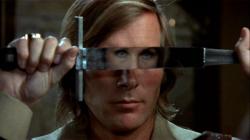
Captain Kronos - Vampire Hunter
1974 -
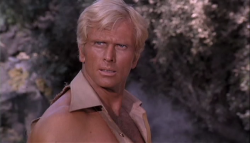
Doc Savage: Man of Bronze
1975 -
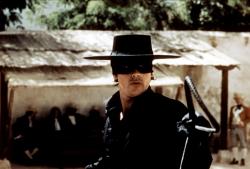
Zorro
1975 -

Flash Gordon
1980 -
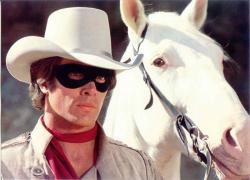
The Legend of the Lone Ranger
1981 -

The Adventures of Buckaroo Banzai Across the 8th Dimension!
1984 -
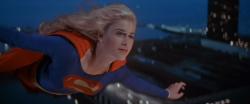
Supergirl
1984 -

Dune
1984 -

Masters of the Universe
1987 -

Howard the Duck
1986 -

Willow
1988 -
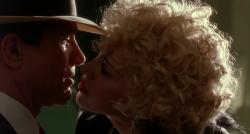
Dick Tracy
1990 -

The Rocketeer
1991 -
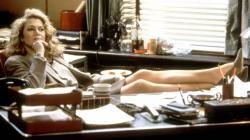
V.I. Warshawski
1991 -
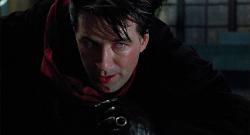
The Shadow
1994 -

Godzilla
1998 -
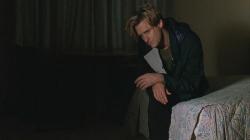
The Zero Effect
1998 -

The Mod Squad
1999 -

Hulk
2003 -

Master and Commander: The Far Side of the World
2003 -

John Carter
2012
We don’t do comments anymore, but you may contact us here or find us on Twitter or Facebook.



